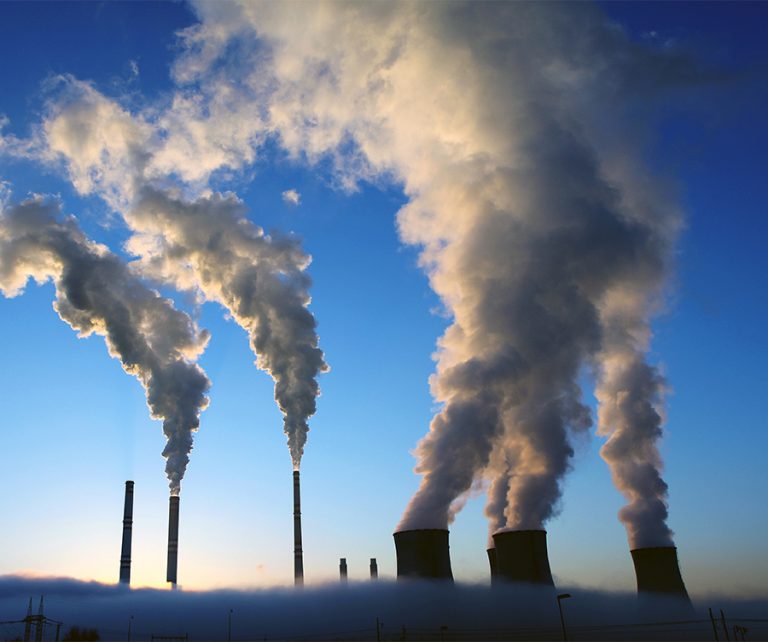A landmark deal has been struck by Organisation for Economic Co-operation and Development (OECD) countries to formally ban export credit support for unabated coal-fired power plants, but campaigners are calling for the group to widen the scope of the restrictions.
Participants to the OECD Arrangement on Officially Supported Export Credits have announced that an agreement has been reached in principle to stop all official export credit and tied aid support for new coal-fired power plants, unless they come equipped with carbon capture and storage (CCS) technology.
Deals for existing coal plants will also be prohibited, except in instances where a transaction supports the supply of equipment that can abate pollution or CO2 emissions at a power plant.
The move comes roughly a month after several governments, including the US, UK, EU and South Korea, initially proposed the ban in an extraordinary meeting of the OECD Arrangement.
A few member countries reportedly expressed reservations about the proposal when it was tabled. An industry source told GTR at the time that Australia and Japan were unsure whether to consent to the ban.
But any differences in opinion now look to have been settled, and the OECD says the aim is for restrictions to come into effect by the end of October, once participating nations complete their “formal internal decision-making processes”.
Efforts to finally end export credit agency (ECA) involvement in overseas coal projects have been gathering pace in the past year, with G7 ministers having vowed in May to take “concrete steps towards an absolute end to new direct government support for unabated international thermal coal power generation by the end of 2021”.
Campaigner concerns
Participants to the OECD Arrangement on Export Credits had previously sought to stymy funding for the coal industry, agreeing in 2015 to new rules prohibiting support for projects unless they used “ultra-supercritical” technology or were smaller plants in the poorest countries.
In the time since, the majority of Western countries have largely shifted away from coal financing.
But activists and NGOs have voiced concerns that, despite these controls, countries such as Japan and South Korea continue to approve billions of dollars in funding for new power plants.
In December last year, for instance, environmental campaigners condemned the Japanese and Korean governments for helping finance the US$1.8bn Vung Ang II project in Vietnam through their ECAs.
Following the recent commitment, Valdis Dombrovskis, executive vice-president and commissioner for trade at the European Commission, says that government support for export credits of coal-fired electricity projects will “now be a thing of the past”.
In its comment on the new development, the US Treasury says: “Burning coal is one of the largest sources of carbon dioxide emissions globally and ending export credit financing of unabated coal is crucial for the decarbonising of the power sector. The new prohibitions build on the 2015 coal power-financing restrictions and close off the remaining avenues for OECD export credit agencies to support unabated coal power, consistent with our international obligations.”
As efforts to tackle the climate crisis gather pace, public and private financial institutions have sought to address their role in financing the most polluting of fossil fuel projects.
The Asian Development Bank confirmed last week it would pull support for oil and coal extraction and power projects.
With sources of financing drying up, experts say that such projects face an “existential threat” in developing economies.
Nonetheless, campaign groups have voiced concern about the scope of the OECD restrictions and argue the latest measures are ultimately “weak”.
Oil Change International, Friends of the Earth and ReCommon say in a response statement that while the OECD ban will end backing for unabated coal power plants, the measures do not address export finance for coal mining.
In the statement, Kate DeAngelis, international finance program manager at Friends of the Earth US, questions why OECD participants failed to introduce new rules aimed at curbing ECA involvement in the oil and gas sectors, which on average receive “tens of billions” more in export credit support than coal every year.
“Export credit agencies are the largest providers of public finance for fossil fuels, providing US$40.1bn a year in public support between 2016 and 2018. They are lagging behind other institutions in making progress to reduce their fossil fuel support. The United Kingdom is the only ECA thus far that has announced an immediate end to new international public finance for coal, oil and gas,” says the group.
UK Export Finance stopped providing support for all oil, gas and coal projects in March, and despite a pledge made by six other ECAs to enforce similar measures, countries such as France, Sweden and Germany are yet to set a timeline for imposing a blanket ban on all fossil fuel transactions.
The campaign groups point out that multiple development finance institutions, including the European Investment Bank, the Dutch development bank FMO and the French Development Agency, have adopted tougher restrictions than most ECAs in terms of their support of oil and gas financing.
“This is a missed opportunity for major economies to finally walk the talk on climate and decarbonise the portfolio of their export credit agencies,” says Antonio Tricarico, programs director at ReCommon.







